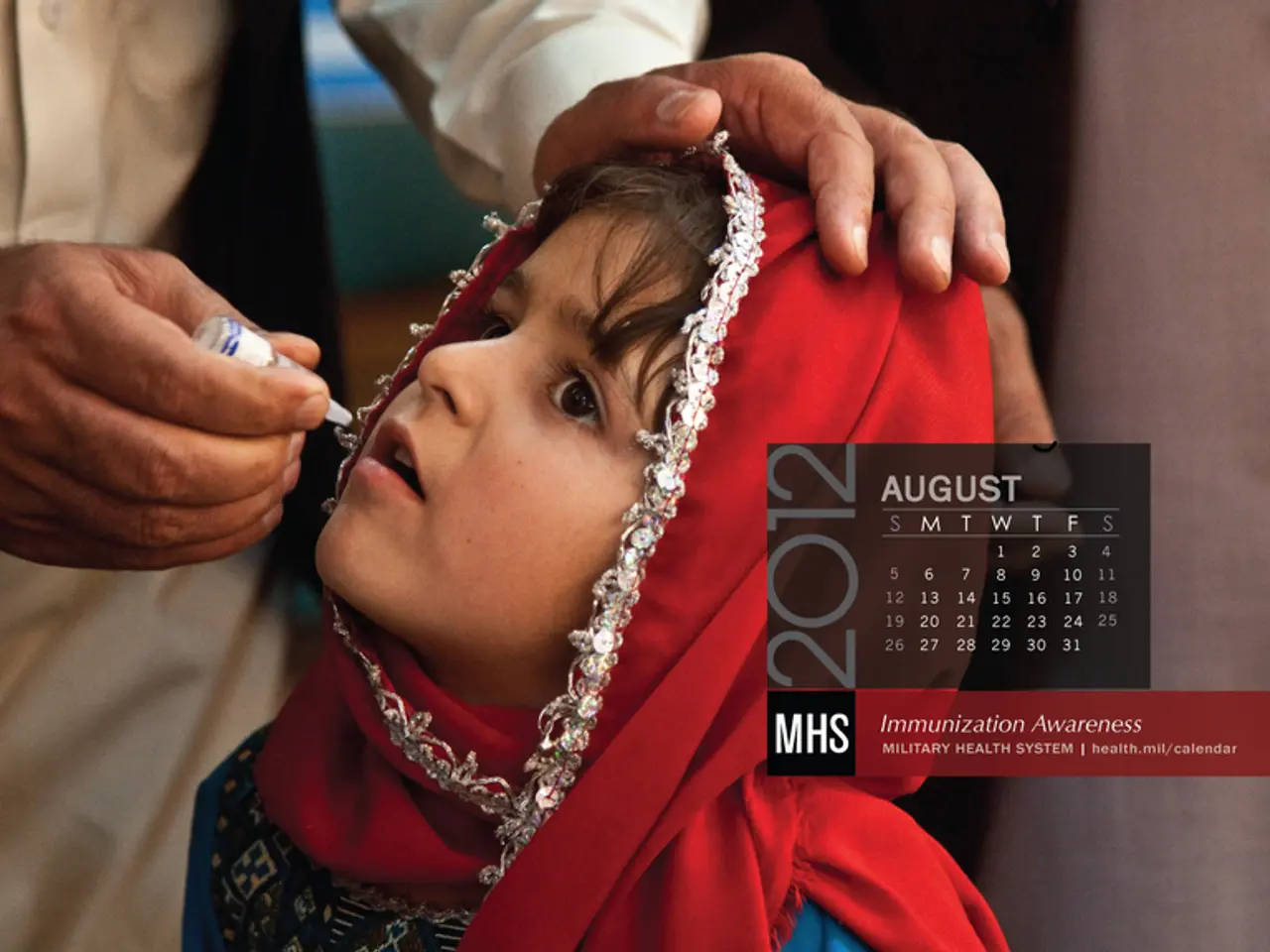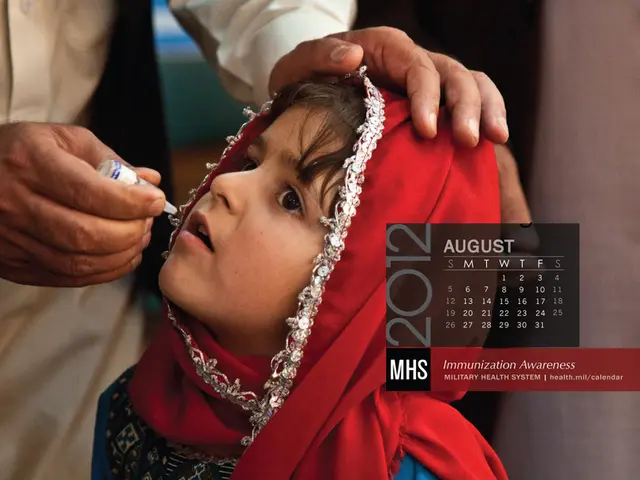The virus persists as a continuing menace, despite appearances suggesting otherwise.
Mpox Outbreak Remains Active and Expanding in Africa
As of August 2025, the mpox outbreak continues to pose a significant public health challenge in Africa, with ongoing transmission in 24 countries, an increase from 13 a year earlier [1][2][3]. The geographic reach of the virus has expanded substantially, and this is the first time many of these countries, including Gambia, Kenya, Uganda, and South Sudan, have ever seen cases of mpox [5].
Despite some recent drops in the number of cases on the continent, the virus is "far from being controlled," with tens of thousands of cases and unclear total burden due to weakened surveillance capacity and aid cuts [1]. The outbreak also continues to cause illness and death, especially among vulnerable groups such as people living with HIV [2].
The response to the mpox outbreak has been criticized for falling dangerously short, despite $1.1 billion being pledged to support mpox control [6]. One of the main challenges has been the slow and insufficient vaccine rollout efforts in Africa, hampered by logistical, bureaucratic, and funding challenges [1]. As of now, only about 886,000 people have been vaccinated in a dozen African countries, and just over 3 million doses have been delivered to the continent [4].
The future outlook depends heavily on improving surveillance, vaccine coverage, and community engagement, alongside overcoming political and logistical barriers [1][4]. Without enhanced international support and robust public health measures, sustained transmission and geographic expansion are likely, particularly in Africa where healthcare disruptions persist [5].
Outside Africa, mpox continues to spread primarily through travel-related cases, with sporadic community transmission mostly limited to Central and Eastern Africa clades [2][5]. Countries including Australia, China, and the UK have reported travel-associated cases [2]. The World Health Organization (WHO) has maintained mpox as an international health emergency given the sustained transmission and risks [3].
| Aspect | Current Status | Future Outlook | |-----------------------------|-----------------------------------|----------------------------------------------------| | Geographic spread in Africa | 24 countries affected, growing spectrum of mpox clades | Likely further spread without improved control | | Case and death burden | Tens of thousands of cases, deaths especially among HIV+ | Potential continued cases unless transmission interrupted | | Surveillance and data | Severely compromised due to aid cuts and conflict | Needs urgent restoration for effective response | | Vaccination | ~886,000 vaccinated; slow, chaotic rollout | Critical but requires scaling, funding, and access | | Global spread | Travel-associated cases outside Africa; limited community transmission globally | Continued vigilance needed, but low general risk | | Response challenges | Political, logistical, and security barriers persist | Requires coordinated international and local action |
The laboratory network used to test suspected mpox cases has grown significantly in the hot spots. For example, Burundi had two labs capable of testing mpox a year ago, and now has 56 [7]. However, the imprecise figures of mpox cases are due to stigma associated with a sexually transmitted disease, limited surveillance and diagnostic capacity in remote areas, and cuts to foreign aid [8].
By the Africa CDC's count, there have been roughly 97,000 suspected mpox cases across the continent and nearly 600 deaths so far this year [8]. The new strain of the virus, officially called clade 1b, has been spreading rapidly across Africa, particularly among sex workers and their clientele [9]. The emergency declaration helped to secure the pledged resources, but there is still a lot more work to be done [6].
One dose of the mpox vaccine costs approximately $100 [10]. No African country had granted regulatory approval for the mpox vaccine that the U.S. was hoping to send a year ago, but now, 17 countries have approved it [11]. Today, August 14, marks the one-year anniversary of the World Health Organization declaring mpox a Public Health Emergency of International Concern [12].
References:
- NPR
- The New York Times
- The Guardian
- Africa CDC
- WHO
- Reuters
- Africa CDC
- The Washington Post
- CNN
- CNN
- Reuters
- WHO
- NPR
- The New York Times
- The Guardian
- ESG trends in global health and wellness indicate a heightened focus on public health emergencies, such as the ongoing mpox outbreak in Africa, with the value of investments in this sector closely tied to the success of mitigation strategies.
- Analytics reveal a correlation between economic instability, weakened surveillance capacity, and the expansion of medical-conditions like mpox, as noted in Africa where aid cuts have hindered efforts to curb the virus.
- Wealth management firms are scrutinizing the political and logistical risks associated with investing in countries experiencing outbreaks like mpox, particularly in the context of credit default implications.
- The mpox outbreak serves as a case study in the intersections of science, public health, and economics, highlighting the potential health-related risks that could impact wealth creation in diverse geographic regions.
- The mpox outbreak's continued risk of expansion, coupled with the stigma and challenges in surveillance, could have far-reaching impacts on insurance and reinsurance markets due to the potential increases in claims related to medical-conditions.
- In the context of Individual Retirement Accounts (IRAs), investors are encouraged to consider the long-term implications of the mpox outbreak and broader public health crises on their portfolios, as the combination of science, medical-conditions, and geopolitics will continue to shape global economic landscapes.




